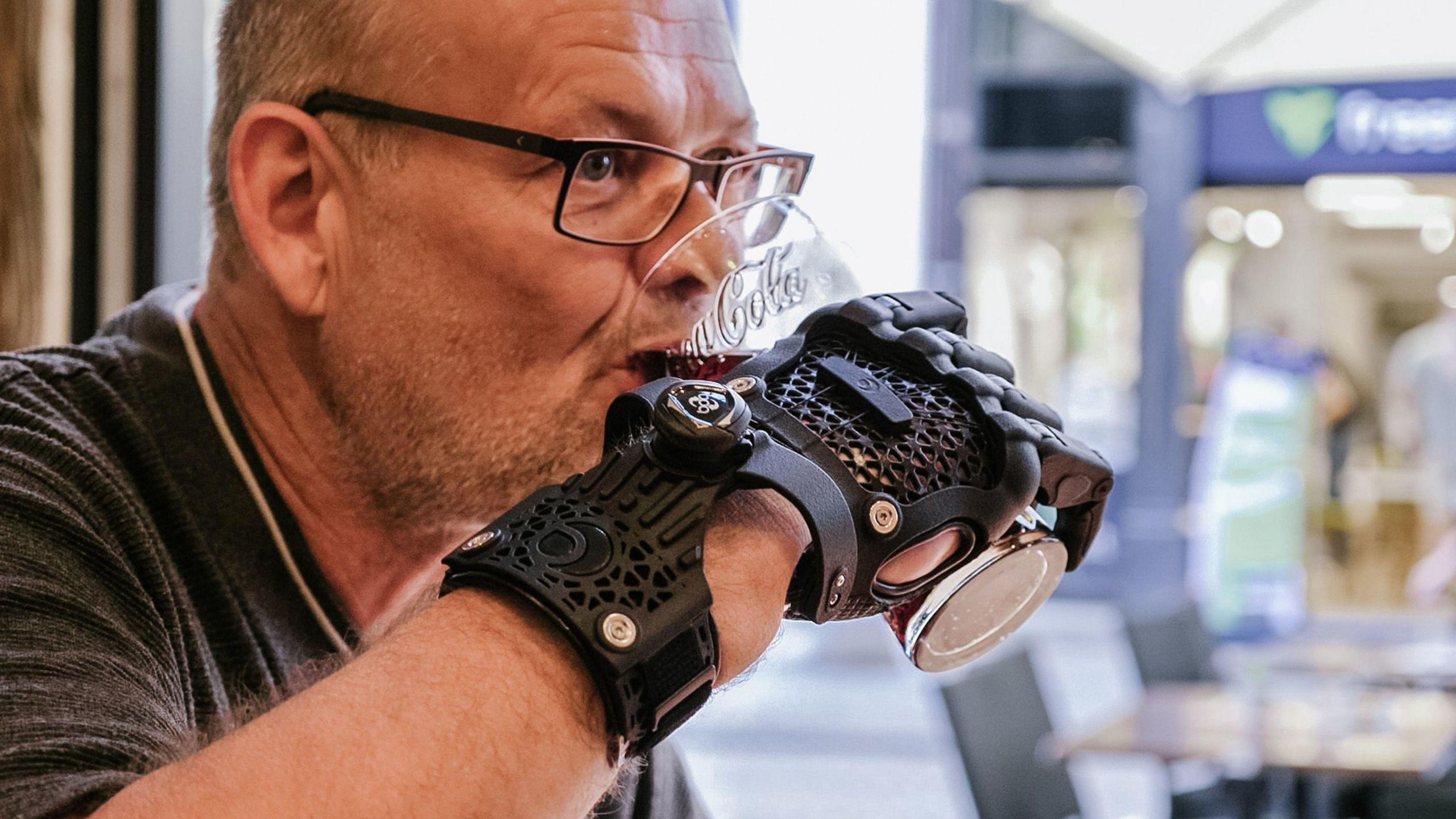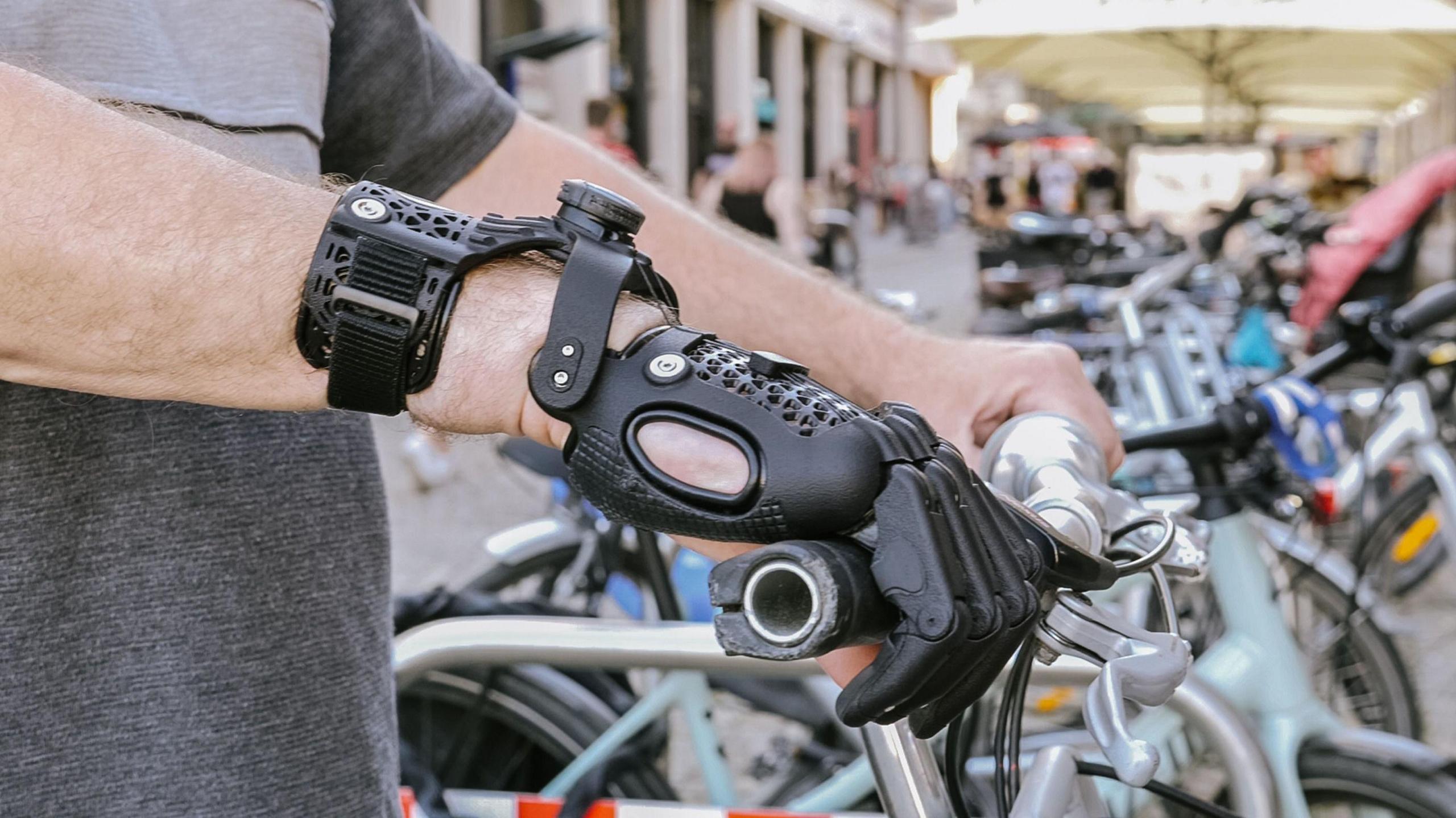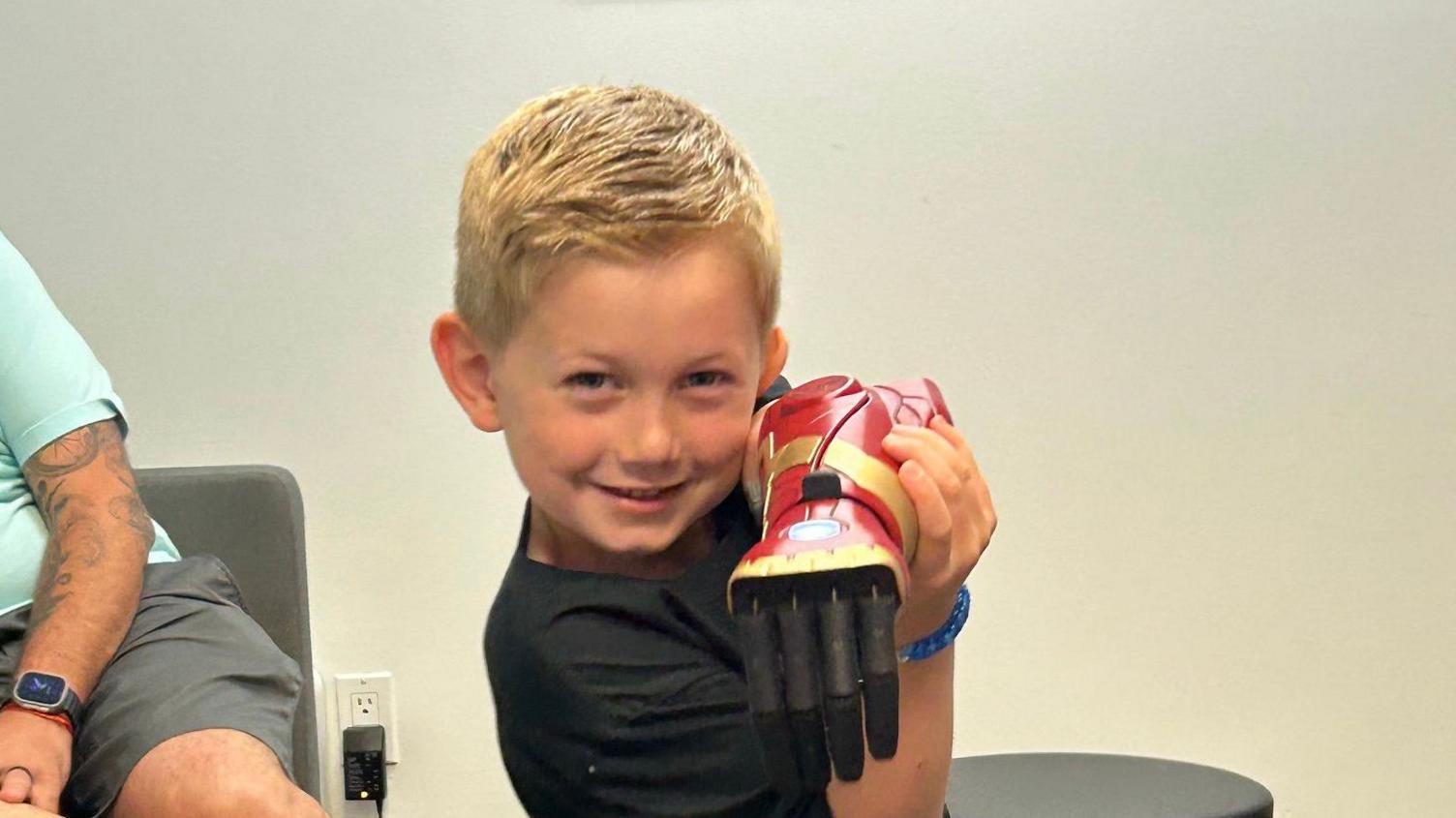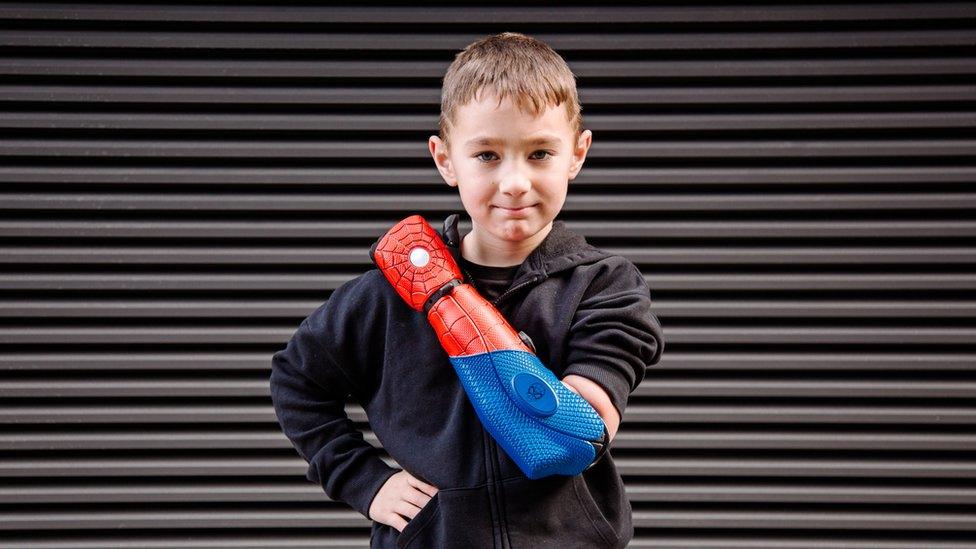First person receives pioneering bionic hand

The Hero Gauntlet is custom-built using 3D printing
- Published
A Bristol company has given a man who lost four fingers the ability to hold things again with a new 3D printed device.
Open Bionics, which operates from the city centre, said 52-year-old Michael Altheim was the first person in the world to get the device, called the Hero Gauntlet, outside of prototypes.
The new device has 3D-printed fingers which strap onto his palm and are controlled by Mr Altheim's wrist motion, enabling him to experience gripping and holding objects for the first time since his accident a decade ago.
Mr Altheim, from Frankfurt, Germany, said the "new hand works perfectly without delay".
"I previously had partial finger solutions, but the weight was really heavy, operation minimal and it wasn't waterproof," he said.
"I could maybe fold a towel and that was it ... When I slipped the Hero Gauntlet on and moved my joint and then my fingers went - I thought in amazement 'Oh yes, look there.'"

Mr Altheim said he planned to use the device to fish, ride a bike and do DIY
Mr Altheim said he was able to hold a shopping basket with the device and use his other hand to load groceries, but also planned to use it when out fishing, going on bike rides and doing DIY tasks.
Samantha Payne, chief operating officer and co-founder of Open Bionics, said: "We've had so many requests from the limb difference community to design and develop a partial hand solution that offers function and comfort for all-day wear.
"It's pure joy to see this piece of engineering have an instant positive impact on activities Michael loves doing."
Open Bionics is currently working with insurance groups in Germany to offer the technology to partial hand amputees, adding there were "many more German citizens currently undergoing trials for this technology".
Founded in 2014, Open Bionics also produces a 3D-printed prosthetic called the Hero Arm, which it has fitted people with in the UK, America, Ukraine, Germany, and Australia.
Follow BBC Bristol on Facebook, external, X, external and Instagram, external. Send your story ideas to us on email or via WhatsApp on 0800 313 4630.
Related topics
- Published24 May 2024

- Published20 February 2024
